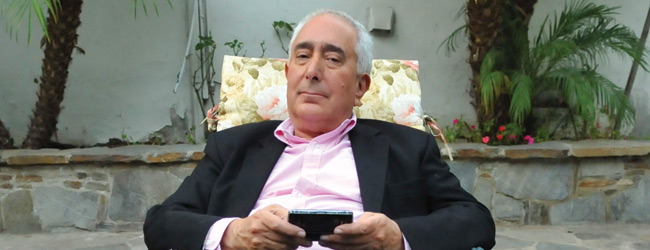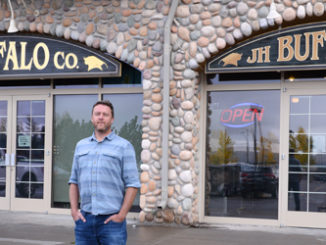Mark, you’re known for your tenacity on and off the court. Looking back, while growing up in Pennsylvania and while you were in school in Bloomington, Indiana, when did the people around you first start recognizing that characteristic?
I don’t know. It’s probably attributable to my parents who have always told me, “If you want it, you’ve got to do it.” My dad did upholstery in cars, so if you had a rip in a car seat, you took it to my dad. He and my uncle did that together for 40 some years. My dad did not raise me to believe whatever I wanted he would run out and get for me. My dad raised me to understand if I wanted something, I had to work for it. I suppose in college my tenacity became more apparent. I was always trying to find an idea that would get me going, even though a lot of them failed. In Bloomington, people truly recognized that I might be an entrepreneur to be reckoned with.
One of the things I discovered while setting up this interview with your support staff is that you’re a private guy, which is almost a little ironic considering your persona. If I were going to ask your father, your wife or people who are very close to you, what side of Mark we don’t get to see, what would I hear?
My family and close friends would tell you I’m quiet and pretty reserved. There’s probably two Marks. The one most see is during the 48 minutes of a Mavericks game, or how I am when I play basketball or rugby. I am outgoing when I am out drinking with my friends. They’ll tell you that I have not changed a whole lot.
When I have time, I spend it with my family and I’m pretty relaxed. I’m not manic and crazy all the time like people think. Recently, I was at a wedding in the Cayman Islands and, as part of the activities, our family and some other families all went on a boat. The guy who ran the boat was there and I was playing with my kids. He didn’t know anything about basketball, didn’t know who I was or anything. He said, “What’s your name? Mark?” I said, “Yes.” He said, “You’re pretty quiet. You don’t say a whole lot.” Everyone started laughing. They’re not going to take a snippet like this and put it on SportsCenter.
I think people see me in the media and think that’s just me. There’s always cameras on me and I just learn to disregard them and be myself. The time I scream and the time I yell at a referee or during a game, that’s what you’re going to see. But, what they don’t know is, before I bought the team and before anyone knew who I was, I was even crazier. I know there are those who think I bought the team and I’m putting on this big show. Everyone has a place to release the tension and energy. I try to do it playing sports and at Mavs games. That’s where I let go.
Speaking of the Mavs, what do you think the difference is between a good coach and a great coach?
That’s a very interesting question. Hiring a coach is among the hardest things I’ve learned now that I’m on my third coach in 10 years. The best qualities of a coach are, probably, the ability to relate to motivate and coach—with the X’s and O’s—the players you happen to have on your team at that point in time. We started off with Don Nelson when I got here and he had kind of molded the team to fit his personality, but, as time went on, some players didn’t match as well and it didn’t become as good a fit. That same thing happened with Avery Johnson. We’ve tried to correct that and bring it in with Rick Carlisle. I think leadership skills, technical interface on those skills and communication skills, rolled into one. You have to be able to evolve, depending on who your audience is, meaning the players on the roster. That is very difficult to do.
I don’t care which sport you choose to base this answer off of—basketball, baseball, football, etc. When you look at coaches, players and owners, who do you think did the most with the least?
You have to look at unsung teams in baseball. I think that’s where you get to see the most with the least. Like when the Marlins didn’t have much of a payroll and made it to the World Series or when Tampa Bay made it to the World Series. We all love underdogs like that and I think you have to give credit to their management and general managers and ownership.
In basketball, it’s a bit more star-driven. Even on some teams like Oklahoma City, you see Kevin Durant emerging as a superstar. You can see that. But, what’s interesting on teams that have success that I tend to note is—and I saw it with the Mavs—when you first get success, you’re busting your ass wanting to get there. You want to taste what it feels like to be successful and you see teams go to the nth degree to get there. Then, once they taste it, they want to take credit for it. They want to enjoy it. They’ve reached a level that people didn’t expect of them—they didn’t know whether they could get there themselves. They like the adulation. They like the crowd screaming their names. Sometimes that takes the edge off and sometimes you need that edge. I think the best leaders are ones that can keep that edge, and once people have reached successful levels, that’s not easy to do.
It’s not easy to manage superstars and you have quite a few. How do you do it?
It’s no different than managing a sales force. People always ask me, “What’s the difference when managing a superstar in basketball?” Let me tell you, a superstar in basketball—because there’s a box score and there’s media watching you every day—is going to show up every day. A superstar on your sales force is going to give you grief that lets you know he or she is a superstar. They’re going to threaten not to show up.
They’re going to threaten to take their accounts with you, and that is a thousand times harder to deal with than anyone you can put on the basketball court. People always talk about athletes being prima donnas or athletes being immature. But, let me tell you, because of the media attention, dealing with even the worst of guys that we’ve had—we’ve had a few knuckleheads come through there—that’s nothing like dealing with the 21-year-olds that were in MicroSolutions’ service department, going out and getting trashed and getting in trouble. It’s just that you don’t read about it in the paper. Every company has had to deal with it. They don’t pay their bills, get divorced and the wife is chasing after them. They bring that to work. You have to deal with so many little dramas as an entrepreneur in any business of any size—this has prepared me for the Mavs when having to deal with personnel issues.





I remember a few years ago, Cuban offered to buy the Pittsburgh Pirates. I wish they would have left him buy them. He probably would have turned the team into a winner.
What a fantastic post. I spend hours on the internet reading blogs, about tons of different subjects. I have to first of all give kudos to whoever created your theme and second of all to you for writing what i can only describe as an unbelievable post. I honestly believe there is a skill to writing articles that only a few posses and frankly you have it. The combination of informative and quality content is definitely extremely rare with the large amount of blogs on the internet.
great interview. it’s a peak into the mind of a billionaire. It’s like a comprehensive course on the habits of a highly successful entrepreneur, and it’s worth every penny you pay for the course. we are so lucky it’s available online.